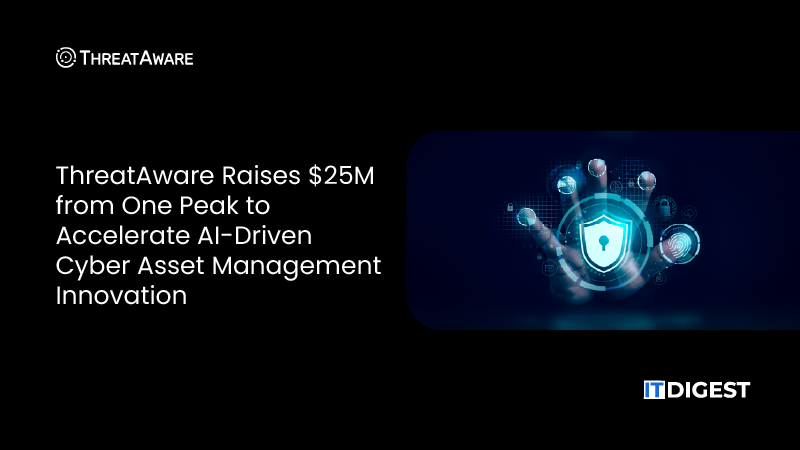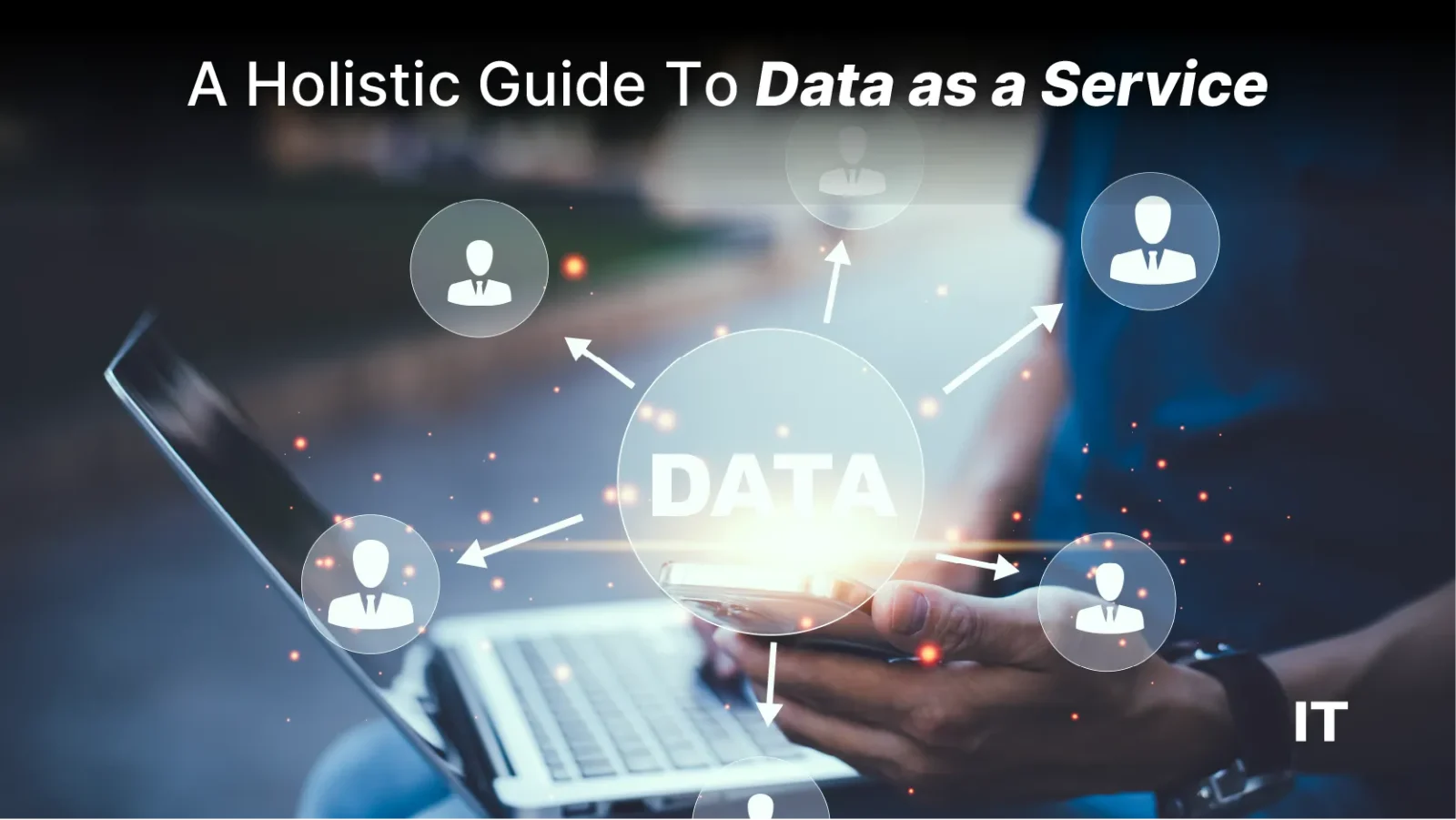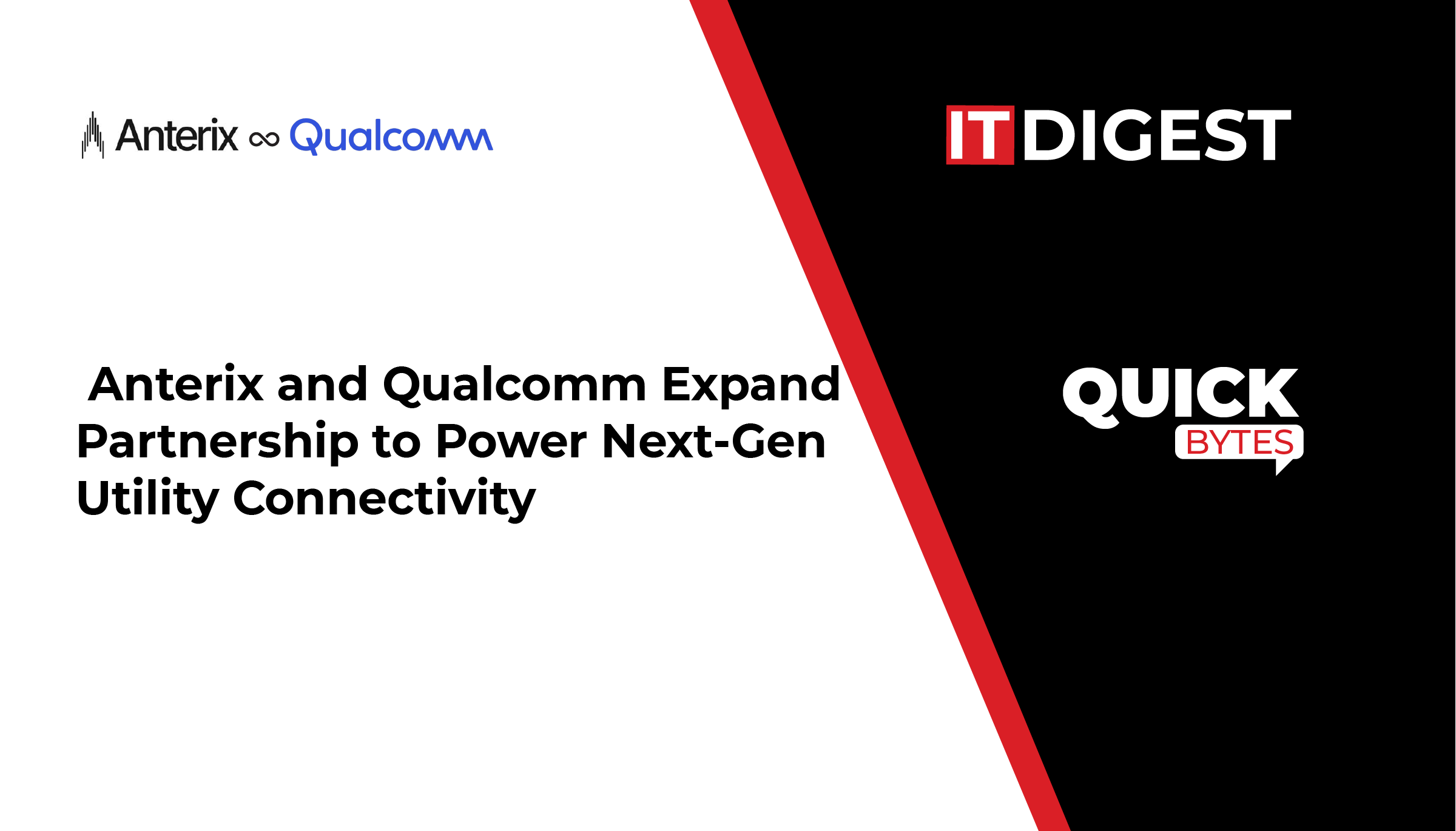Organizations are heavily dependent on data today in a much wider spectrum than ever before. Additionally, the strategies to gather, store, and process data are evolving at an exponential rate. The advancement of cutting-edge technologies is one of the catalysts for utilizing data to make significant changes. Increasing connectivity approaches such as mobile devices and IoT sensors extend the availability of data types and support the constant evolution of the data market. As the demand for data is constantly changing, it has triggered the rapid development of data processing vendors referred to as Data as a Service (DaaS) providers.
In this blog, let us have a look at the benefits of Data as a Service, its key characteristics, and the working model.
Key Characteristics of Data as a Service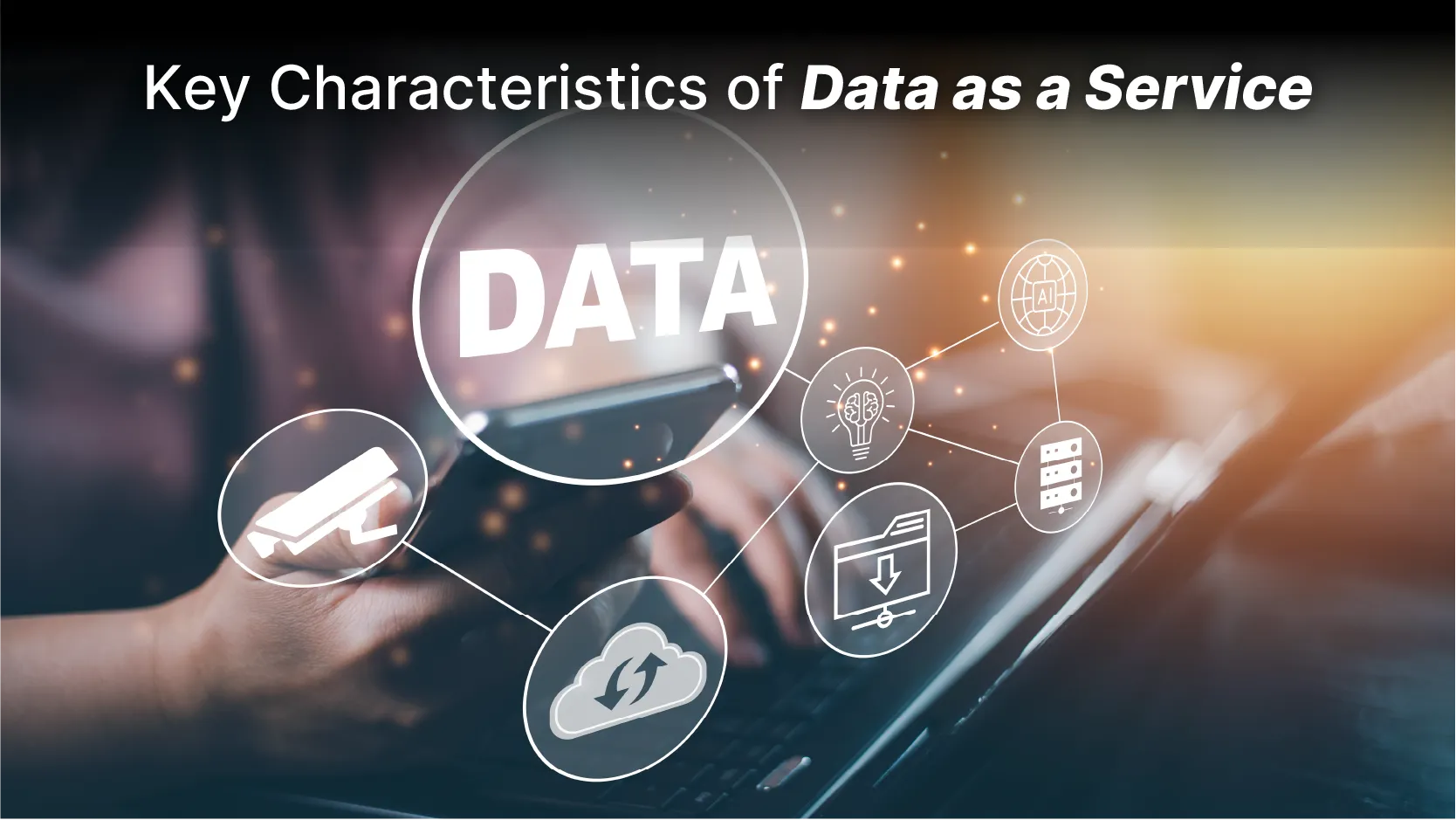
What does data as a service mean to users, and what are the main differences between traditional data organizations and DaaS?
● Bolster Business Outcomes
DaaS solutions need to seamlessly integrate into the current work processes rather than asking clients to modify their processes to ensure streamlined integration. The service provider needs to have an in-depth understanding of customers, frictionless integration opportunities, and data that offers real-time business insights. It is critical for expert organizations to prioritize a smooth integration process and address particular customer concerns.
● Improve Margins
The operations costs of a general data organization are significant, particularly if the company is running on a small scale. However, as the business scales, the gross margins tend to increase as well. Decision makers need to analyze their expenditure structure of acquiring, creating, and processing data modifications with the growth of their customer base.
Businesses can scale if multiple new customers make your gross margin significantly higher than small-scale operations. A growing bottom line is critical in creating a vast and resilient niche enterprise.
● DaaS Needs to be Machine-readable
The quality and accuracy of data can accelerate innovation by embracing machine learning and AI. On the other hand, data mistakes can lead to disasters. Organizations can explore a wide range of opportunities to ensure the accuracy of data by making the DaaS machine readable. There are various tools in the market that refine the solution, label the data, and make it for algorithmic use.
● Regularly Update the DaaS
The data the organization gathers provides valuable insights when it consists of the following two things:
- Agility – the characteristics of evolver over a short period of time
- The value in identifying the modifications that are happening.
If the data transfer rates are high, the organization’s data features a significant potential for value. The real estate and stock market data are perfect examples of fast-evolving value growth.
As the demand for AI-enabled products increases, DaaS will continue to scale as well. However, the success of the organizations implementing these technologies will rely on the quality of data, speed, and margins.
Also Read: What is Big Data Architecture? A Comprehensive Guide
The Working Model of Data as a Service
Various enterprises use different technologies to gather, store, and process data within their organization. The role of Data as a Service is to empower businesses with the interconnection between multiple data sources and tools like business intelligence, applications, reports, and microservices. The tool allows end users to access information leveraging SQL instead of Microsoft Open Database Connectivity (ODBC) or REST.
Enterprises can integrate third-party DaaS services to gather data. Primarily, organizations offer these services through easy APIs.
Advantages of Data as a Service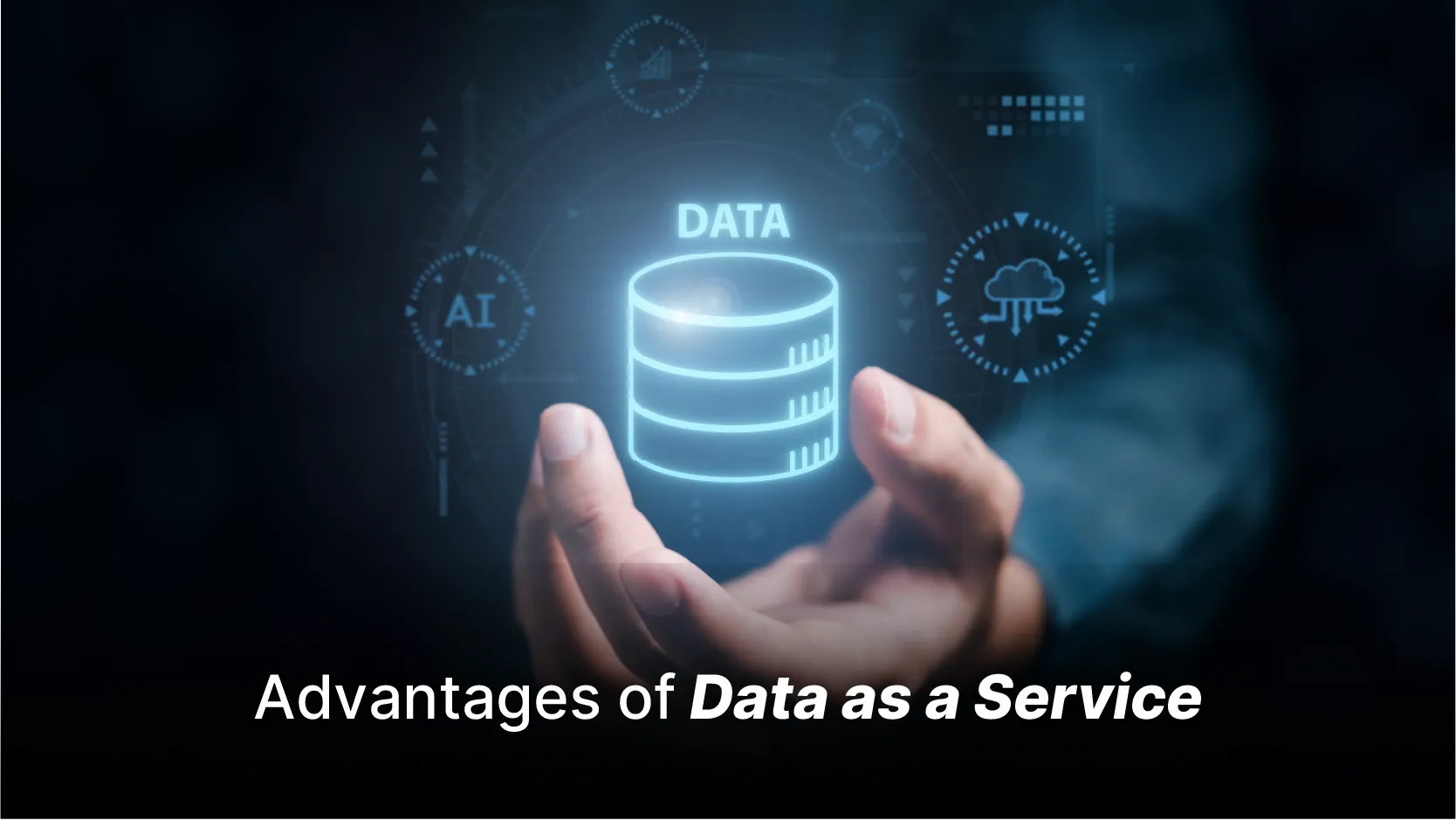
DaaS will help enterprises and their clients to reap the benefits when it is implemented successfully. Given below are a few significant benefits of embracing DaaS:
1. Data Monetization
Gathering enough information is not a problem anymore. The critical challenge for businesses today is structuring the data and using it for operational purposes. Even Though many decision-makers need to adopt data monetization strategies, only a few of them are reaping the benefits to the fullest. Adopting DaaS can pave the way to achieving the goals.
2. Minimizing Expenditures
Enterprises can leverage DaaS solutions to reduce the time and money spent on inaccurate decision-making. Here is how it helps organizations:
- Utilizing the holistic view of a wide range of data source
- Revealing valuable information
- Ensuring informed decision-making
Additionally, by integrating predictive analytics tools, businesses get the following support:
- Identifying client behavior patterns
- Providing enhanced services
- Offering tailor-made user experiences
- Increasing loyal customer base
3. Seek Innovation Opportunities
Organizations can scale quickly, when they consider data as the core of their business. The reason behind this is that data-driven approaches minimize the risk and accelerate innovation. When the required teams get access to real-time and accurate information, they can create successful ideas that provide exceptional value after implementation. As a result, businesses will embrace winning initiatives and get scale in the future.
4. Enhancing Decision Making
Adopting DaaS will allow organizations to make data a critical asset to their business. The technology allows more informed decision-making and effective data management approaches. DaaS solutions amalgamate internal and external data pools, including open data sources and client partners, to get a holistic view of the business operations. Given below are a few ways organizations can embrace data as a service to improve decision-making.
By offering data for analytics end-to-end APIs supporting specific business processes
Organizations can streamline user data access by providing a self-serve directory.
5. Adopting Data-driven Culture Throughout the Enterprise
Organizing data and giving each team access to the data they require is a critical challenge for modern organizations. As the spectrum of data sources grows, DaaS offers integrated information, embraces a data-driven approach, and streamlines the usage of data in existing operations. Furthermore, the technology assists enterprises manage complicated data sets through reusable data sets available for broader applications.
6. Reducing Risks
Enterprises will be at a significant risk if they rely on incomplete data or personal biases. If organizations employ the best data as a service vendor, they eliminate such risks to have winning imperatives. Implementing technologies such as data virtualization to access, modify, transfer, and integrate data via reusable services to improve query performance and maintain data security.
In a Nutshell
Data processing organizations offer exceptional, top-quality data that can meet the demands of various clients. Businesses can partner with the best data as a service provider to improve their strategies to gather, process, and evaluate data. It is one of the significant approaches to improving business performance by making informed decisions based on the gathered data.








